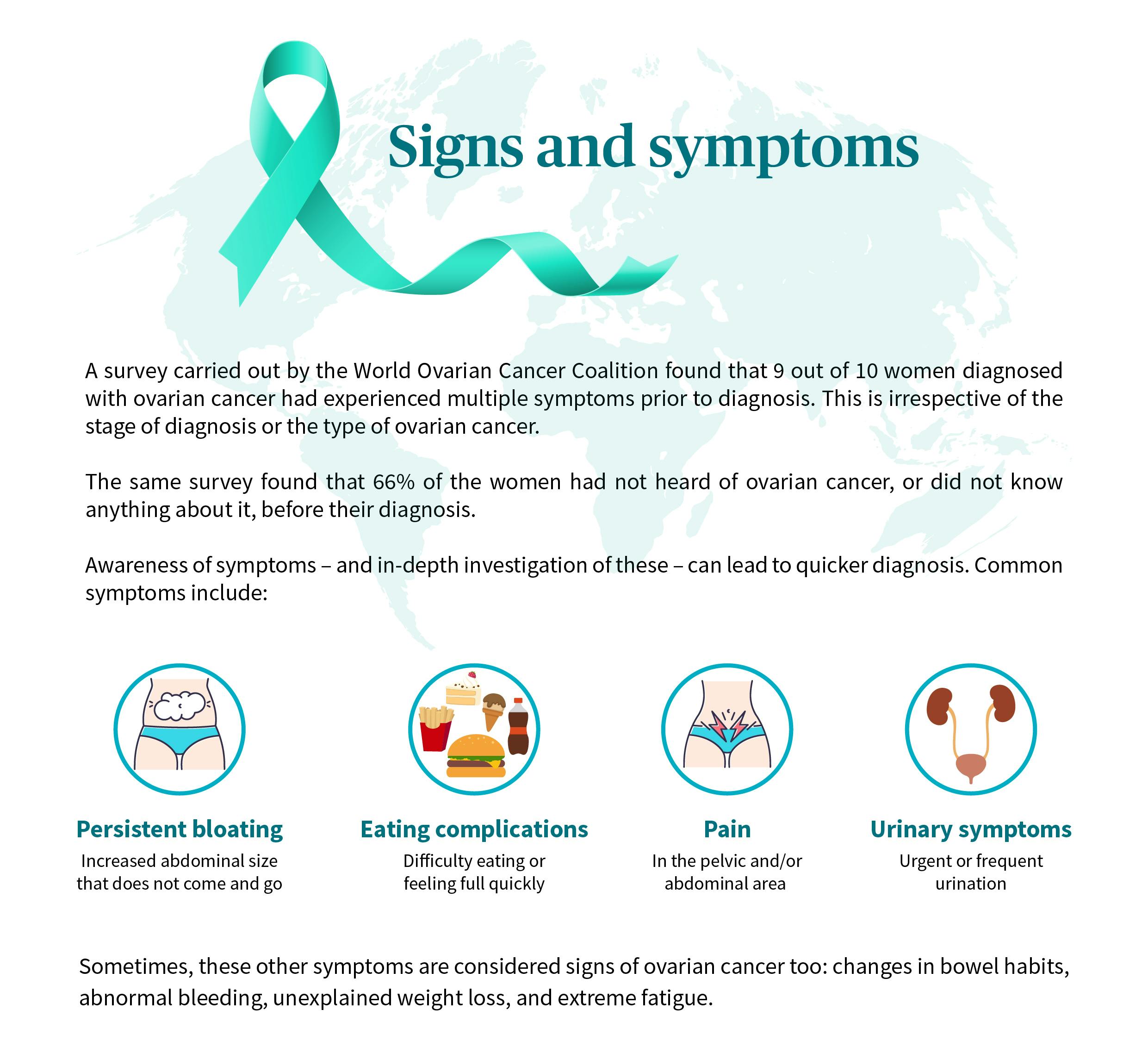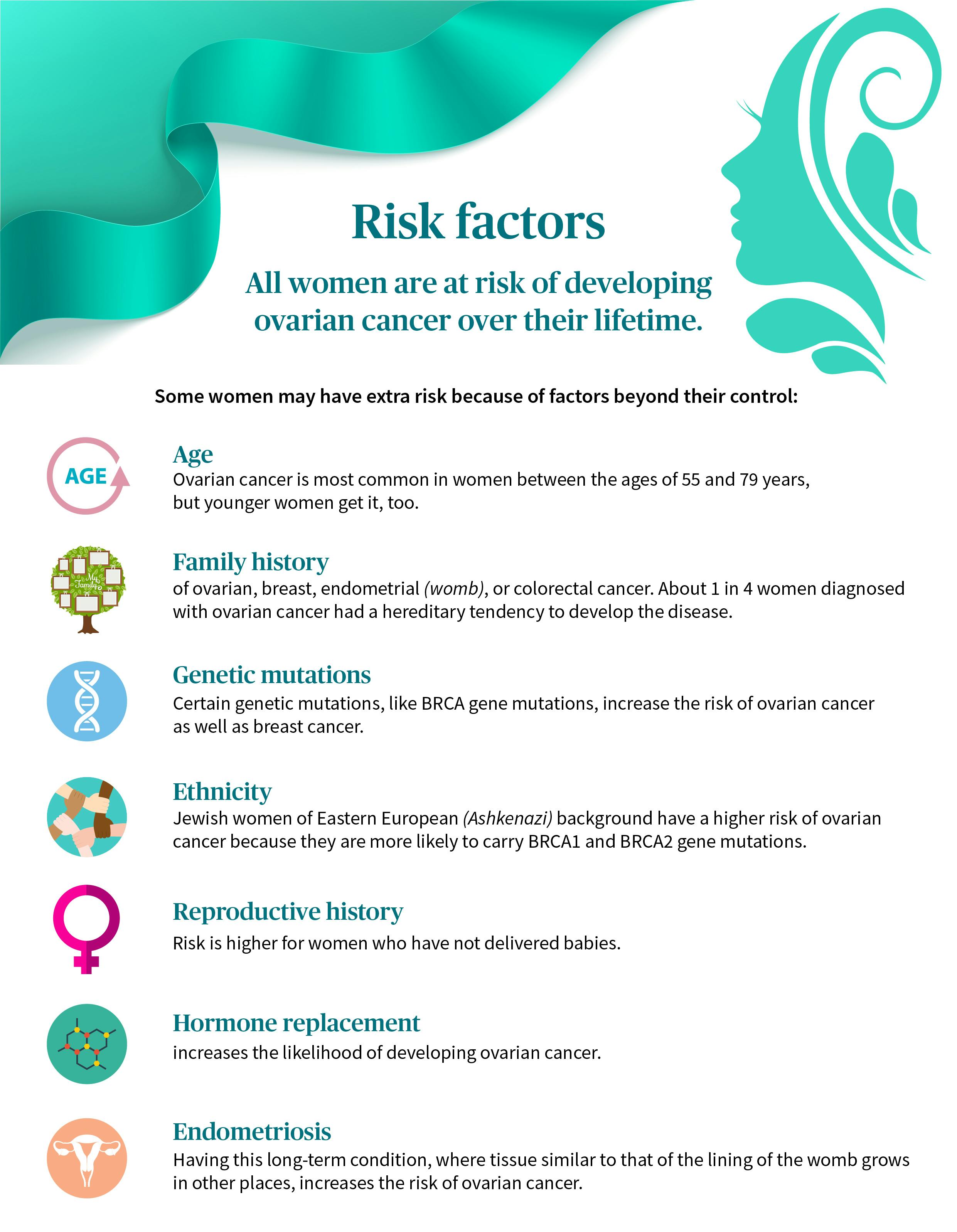TO OFFER YOU A BETTER EXPERIENCE, THIS SITE USES COOKIES, INCLUDING THOSE OF THIRD PARTIES. TO FIND OUT MORE, CONSULT THE PRIVACY POLICY
#PowerfulTogether against ovarian cancer
Recognizing symptoms is the best way to diagnose ovarian cancer quickly and accurately
By: Preferred Global Health
Many of us are aware of breast cancer, but far fewer know about ovarian cancer.
Last May 8 was World Ovarian Cancer Day. Voices across the planet rose together, in virtual and real-life spaces, to raise awareness about the hard facts of this disease. Ovarian Cancer Awareness Month continues to be observed throughout May and we stand in solidarity with sisters, mothers, daughters, titas, and friends to make ovarian cancer a global priority.
Raising awareness is essential to getting the right kind of care especially when symptoms can easily be misdiagnosed as other illnesses. Like all cancers, early detection is key to increasing survival rates.
An umbrella term
‘Ovarian cancer’ is not a singular diagnosis. There are more than 30 different types of ovarian cancers that can affect the ovaries, fallopian tubes, and the primary peritoneal cavity. Different ovarian cancer tumors are named after the type of cell they come from.
The most common type, Epithelial ovarian cancer, comes from the surface of the ovary (the epithelium). Fallopian tube cancer and primary peritoneal cancer are also included in this type of ovarian cancer. Rarer cancers include germ cell ovarian cancer, stromal cells ovarian cancer, and small cell carcinoma of the ovary.
Late diagnosis
Ovarian cancer is the most lethal type of cancer in females. Cervical smear tests, or pap tests, that are the screening tests for cervical cancer but they do not detect ovarian cancer.
It is not uncommon to hear stories where it takes years to be diagnosed. Late-stage diagnosis can often mean the cancer has spread throughout the body and there is a small chance of treatment success.




Unfortunately, it is also possible to develop ovarian cancer without having any of the above risk factors. For this reason, all women should follow established recommendations for gynecologic and breast health: regular exercise, maintenance of an ideal body weight, minimal alcohol intake, and regular monitoring. These offer the best chance of keeping cancer risk at a minimum.
Detection and testing
The pathway to diagnosing ovarian cancer includes a pelvic exam (or an internal vaginal examination), a transvaginal or pelvic ultrasound, and a blood test that checks for raised levels of a protein called CA125. In some cases, doctors may also use a CT scan or PET scan to arrive at a diagnosis.
Sometimes, swelling or bloating of the abdomen is caused by a build-up of fluid, called ascites. Doctors may take a sample of this fluid to check for cancer cells.
The only definitive way to determine if a woman has ovarian cancer is through a biopsy, where a small sample of tissue is taken to be examined under a microscope at the laboratory.
Treatment
Consulting a multidisciplinary team of specialists would be a best practice to arrive at the most suitable course of treatment. Because of the complexities of ovarian cancer subtypes, it is important that treatment be carried out by a hospital or cancer center with an experienced team of gynecologic cancer experts.
Treatment is based on type of cancer, its stage (borderline, stages 1-4, or cancer that comes back), where it is or has spread, general health, and personal preferences. Common treatments options are surgery, chemotherapy, radiation therapy and targeted therapies which are engineered to kill cancer cells and spare healthy ones by interfering with the ways cells grow and targeting cells that cancer cells are dependent on.
Important questions to ask
Understanding different treatments, their side effects, and engaging in conversations about it are important things to consider when making treatment decisions.
Ovarian cancer treatments can cause early menopause or affect fertility so it is important that doctors are informed about any possible desire for future pregnancy before undergoing treatment.
Act now
If you or someone you know are experiencing symptoms or are concerned about ovarian cancer, it is best to act quickly and speak to your doctor. If a primary doctor is concerned, they will arrange for you to see a specialist doctor, usually a gynecologist.
If symptoms persist after a gastrointestinal diagnosis, make sure to seek further professional medical investigation.
If you have a family history of ovarian, breast, or related cancers, speak to your health care providers to find out if you are eligible for genetic counselling and testing.
Cancer and other critical illnesses are not to be taken lightly since these can come unexpectedly. In such cases, AXA’s wide range of health solutions covering critical illnesses can help you prepare. Find out more by visiting AXA’s health products page: https://www.axa.com.ph/products/health-and-critical-illness or reach out to an AXA financial partner.
Preferred Global Health (PGH), a global patient organization based in Boston, USA, is a valued partner of AXA’s Preferred Consultation and Care (PCC) service. The partnership between AXA Philippines and PGH gives eligible AXA policyholders access to PCC where they can get expert advice for diagnosis verification and treatment plans from highly experienced Harvard-affiliated doctors. It provides patients the opportunity to make informed decisions in case of diagnosis of cancer and heart diseases.
__________________________
[1] World Ovarian Cancer Coalition, Symptoms & Risks. https://worldovariancancercoalition.org/about-ovarian-cancer/symptoms-risk-factors/signs-symptoms/
Loading Content...








